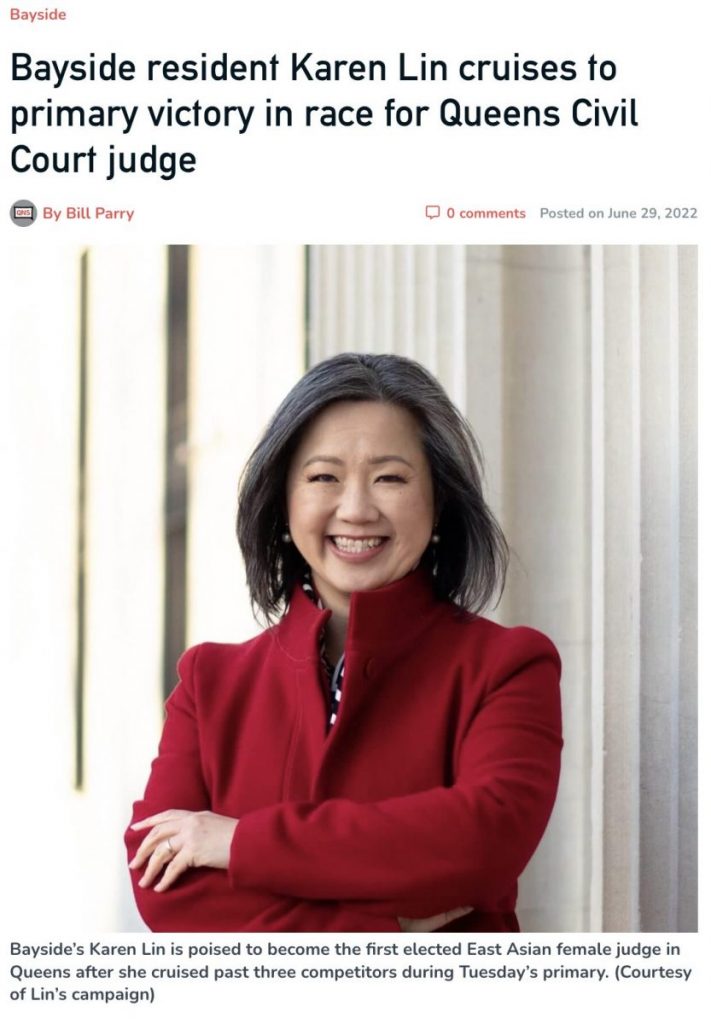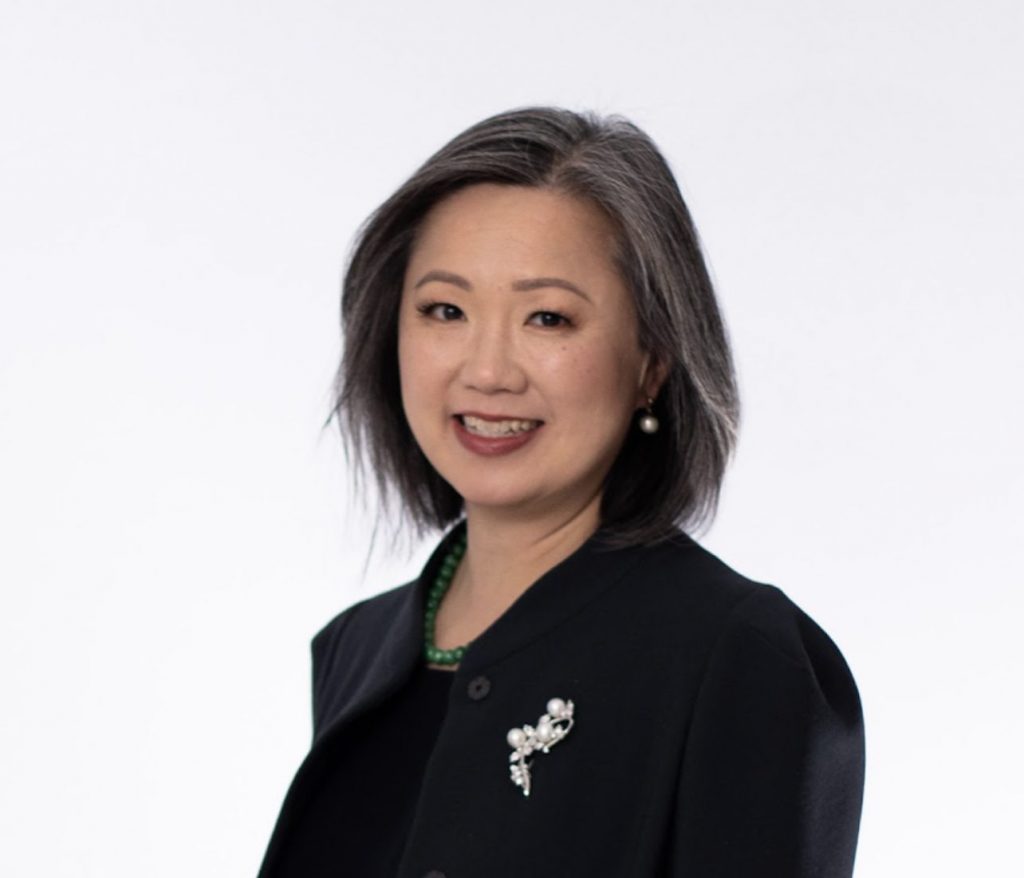On March 21, 2025, Brooklyn Law School’s Asian Pacific American Law Student Association (APALSA) hosted its annual Alumni Dinner at the Forchelli Conference Center, celebrating the achievements of its diverse community and recognizing three distinguished alumni for their contributions to the legal profession. This year’s theme, “Empowering Journeys: Celebrating AAPI Leadership and Impact,” highlighted the dedication and service of these honorees.
Hon. Karen Lin ’95 and Kwok Kei Ng ’16, both members of AABANY, received well-deserved recognition for their commitment to public service and community advocacy. Their efforts have significantly advanced legal accessibility and mentorship within the AAPI community.
Hon. Karen Lin, judge in the Supreme Court of the State of New York, Queens County, received the Public Service Award and delivered a powerful speech reflecting on the pioneering achievements of Asian American trailblazers who paved the way for future generations. As a former Co-Chair of AABANY’s Pro Bono & Community Service Committee, Judge Lin has been a longtime advocate for pro bono legal services, working tirelessly to expand resources for underserved communities. Her leadership continues to inspire young legal professionals to engage in meaningful advocacy and service.
Kwok Kei Ng, honored with the Community Service Award, shared an inspiring personal story of growth and the importance of passing the torch forward. As Co-Chair of AABANY’s Pro Bono & Community Service Committee, Kwok has played a pivotal role in continuing and expanding AABANY’s pro bono efforts. His dedication to ensuring that legal resources reach those most in need has made an impact on both the AAPI and broader legal communities.
Jason Jia ’11, recipient of the Achievement Award, was also recognized for his contributions to the legal profession. Jason reminded attendees of the importance of adapting to and embracing AI and other emerging legal technologies, encouraging students to define success on their own terms beyond grades and law school performance.
Brooklyn Law School President and Dean David D. Meyer and Dean Joy Kanwar joined the evening’s celebration. Dean Meyer delivered encouraging remarks on APALSA’s role in building a strong, supportive community. Dean Kanwar reflected on APALSA’s humble beginnings and its growth into the thriving and impactful group it is today.
All honorees were celebrated for their leadership and commitment to service. The recognition of AABANY members Karen Lin and Kwok Kei Ng reflects their significant contributions to the legal profession, particularly in advancing pro bono work, mentorship, and community advocacy. Their work embodies the spirit of AAPI leadership, paving the way for future generations of legal professionals and inspiring others to follow in their footsteps.
Please join AABANY in congratulating Judge Lin, Kwok, and Jason on their well-deserved recognition.



